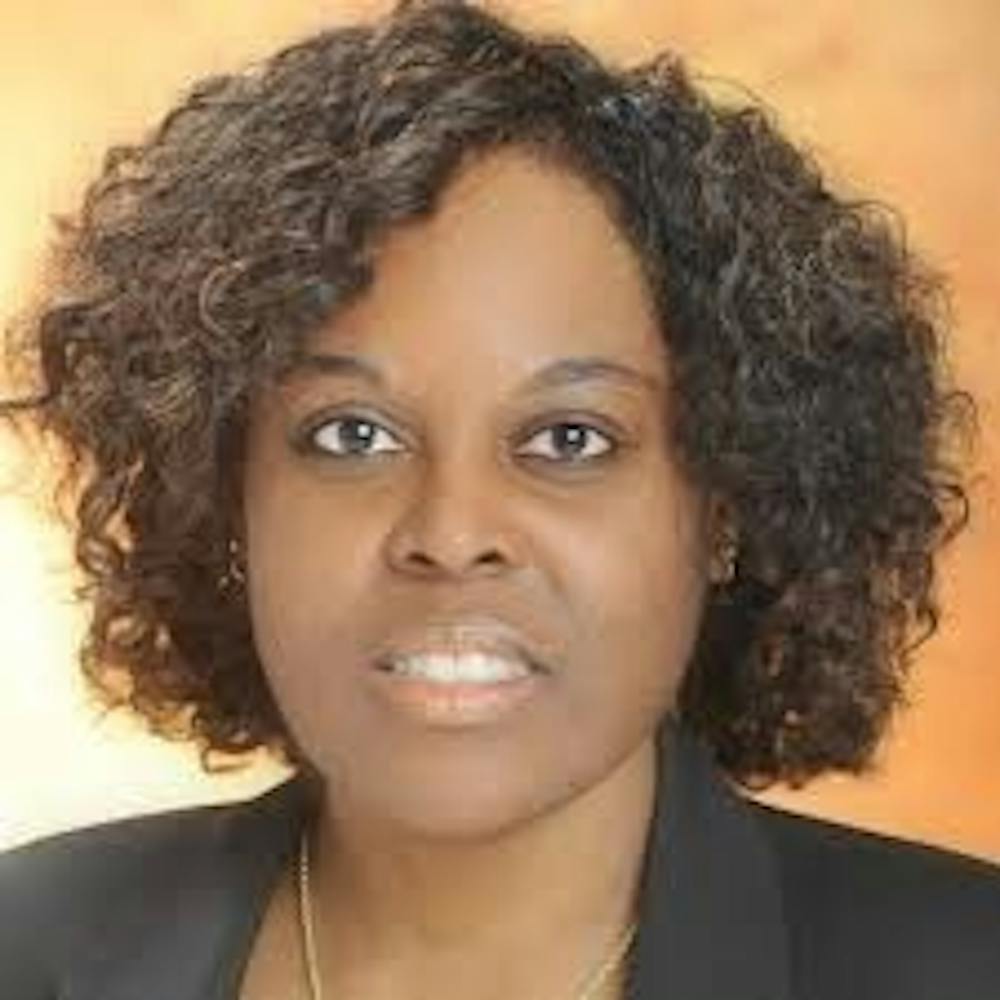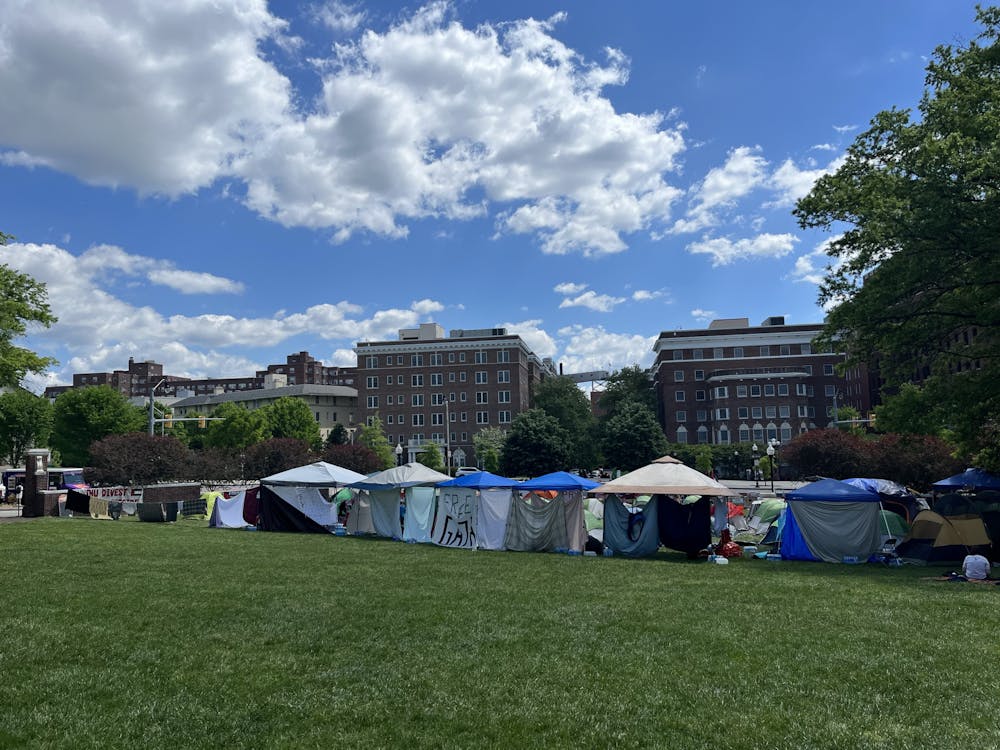Terri Massie-Burrell joined the University as the new director of Student Disability Services (SDS) in August. Her appointment followed the firing of former SDS Director Brent Mosser in March, along with student demands calling for better resources and accommodations for students with disabilities.
Massie-Burrell is a Maryland native and the former director of SDS at Stevenson University, before which she focused on student services and retention as an assistant provost at Frostburg State.
After completing her undergraduate degree in Communications at Howard University, Massie-Burrell earned her Master’s at Hopkins in Human Resources and Behavioral Management. She then completed her PhD in Counseling and Personnel Services with a concentration in disability issues. Her research focuses on the intersection between race, gender and disability.
In an interview with The News-Letter, Massie-Burrell discussed how her experience taking an intersectional approach to disability services taught her to be more aware of her surroundings and her environment.
In her role as director, Massie-Burrell oversees the daily operation of SDS and ensures that students requiring accommodations have their needs met appropriately. She is also responsible for facilitating staff and faculty relationships with students with disabilities.
She expressed her interest in extending the role of SDS director beyond just providing students with accommodations.
“Being the director is making certain that we truly do provide students with the appropriate accommodations based on their documentation that is provided,” Massie-Burrell said. “But it’s also developing a rapport with the students so that they know that they can come to our office if they need someone to refer them to the right place.”
She added that, as a University administrator, one of her primary goals is to establish collaborative partnerships with both the student community and with her colleagues, further emphasizing the importance of making connections with other University administrators and departments in order to create a support network for students.
Massie-Burrell discussed the need for her to listen to the community and ensure that she only implements changes that are necessary and not simply for the sake of change.
“Being new, I like to always emphasize that it is important to take a listening tour and to be really aware of my surroundings,” she said. “Things change, and it is important to get to know what the needs of the students are. That is what I have been spending my time doing.”
Massie-Burrell said that since she started in her new role at the University, she has been working to get to know her staff and understand how the SDS Office can work together to improve on outreach and service delivery.
“We have a really hard-working, small and cohesive staff of graduate students and two professional staff members,” she said.
Massie-Burrell stated that she has high hopes for the inner-workings of this office.
“I feel that I am a good manager in helping my staff members and graduate students bring out the best in themselves, because I have been a mentor and a role model and a leader as a supervisor in higher education for quite some time now,” she said.
According to Massie-Burrell, early outreach with students making the transition from high school to college is an important part of the Office’s future goals. She explained that students sometimes hesitate to seek accommodations because of the stigma they believe is associated with having a registered disability.
“High school, obviously, is totally different from college, so they have to be able to self-identify and move beyond feeling a little reticent about being a part of SDS and being registered,” she said.
Massie-Burrell further stated that by collaborating with other offices, they could extend their understanding of disabilities.
“Our work with diversity and equity offices is just for students to realize that having a disability is just another part of their identity,” she said.
Massie-Burrell added that some of the overarching goals of the SDS Office include collaborating with faculty, staff, graduate students and teaching assistants to improve Americans with Disabilities Act (ADA) compliance at Hopkins, along with ensuring that SDS staff remain approachable and available to address student needs.
“If we are not the direct line of communication, we will do our best to make certain that we put them in the right hands,” she said. “It just wouldn’t just be for academic accommodations but also for housing matters.”
Moreover, she discussed how she has been collaborating with IT Services at the University to explore how SDS could incorporate technology into the services they provide. According to Massie-Burrell, there are many assistive technology services that exist, including free apps, that can help students manage their disabilities, and she hopes to help connect students with the right services.
According to the Progress Report on Student Disability Services Effort released on July 18, the Office of Institutional Equity (OIE) is hoping to implement online training, similar to that of online training on sexual misconduct, discrimination and harassment, about disability-specific education. OIE plans to release this training in the fall of 2019.
Massie-Burrell reflected on how her own experience with having a prosthesis on her right hand has shaped her identity, explaining how that helps her connect with other students with disabilities.
“Although everyone’s disabling condition impacts them differently, at the right time and if appropriate I don’t mind sharing that I also have a disability,” she said.
Massie-Burrell said that this can help her communicate with the students she works with because they know she speaks from experience.
“They know that I am not only talking the talk but I also walk the walk every day. That is something that I have had to develop and grow through,” she said.
As a graduate student at Hopkins before the Americans with Disabilities Act was passed, she discussed how she had to learn how to self-accommodate in the absence of disability services that could have helped her.
“I had already been through undergraduate school, and I was pretty clear on what time frame it may take me to do something versus somebody else, so I would have to start a little earlier,” Massie-Burrell said.
She said that she had to take on her disability by means of her own resources.
“I was a full-time employee and a part-time student, so I was earning money. Even though I wasn’t making a whole lot, I was making enough to where, if I needed to pay someone to type my papers after I wrote it down by hand, I could do that,” she said.
SDS, according to Massie-Burrell plays a crucial role in helping students succeed at Hopkins.
“When we provide a space for open conversation to take place, we are only providing that many more opportunities for students to be successful,” she said.
Massie-Burrell stressed the importance of fostering a campus that is accepting of students with disabilities.
“We want to make certain that students feel that the campus community is one that is open and welcoming,” she said.
Diva Parekh and Meagan Peoples contributed reporting.

















Please note All comments are eligible for publication in The News-Letter.